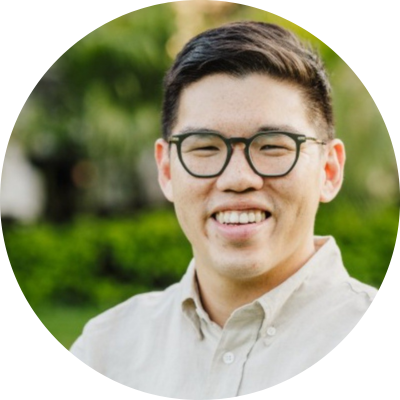Deacon Spotlight: Joel Ang
Joel Ang (2011, BA in Philosophy, Minor in Studio Art)
Founder at Matrimoney in Boston, MA
Tell us about your current job role and employer. What are you currently working on?

I’m the founder at Matrimoney, a credit card consulting company. I help individuals, families, and small business owners marry their existing expenses to the right credit cards so that they can earn points and travel at minimal cost. When used strategically, credit cards and their associated points are incredibly rewarding, but the complexities and nuances of points transfers and award charts can feel overwhelming to many. I help clients navigate the points space and save them thousands of dollars in travel every year.
What key personal and/or career experiences led you to where you are today?
At Wake Forest, I started a wedding photography company and had the privilege of photographing over 20 Wake couples. After graduation, I launched a restaurant website company and remodeled the website for well-known Winston-Salem eateries such as West End Cafe and 6th and Vine. Clearly, I had the entrepreneurial bug even early on!
I took some wild detours before launching Matrimoney, including graduating from podiatry school and completing my surgical residency in Boston, writing for The Infatuation (a restaurant review company) during the pandemic, and working as a healthcare consultant. There’s a lot to unpack there, but I believe I’m finally back in a place where I can thrive, which is running my own business.
What is the most challenging aspect of your job? How do you navigate that challenge?
For better or worse, people have a lot of negative associations with credit cards. I understand the sentiment, and I strongly believe that everyone should avoid credit card debt to any extent possible. However, credit cards can be an enriching tool for personal and business expenses when used in the right way. This is especially true for those who travel, since points have the highest value when redeemed for flights and hotels. I think the best way to dispel the negative associations, is to enable real and positive experiences, which is what I actively work on for clients every day.
What advice would you give to Wake Forest graduates about developing their personal life habits after college (finances, health, values, work/life balance)?
The most important thing I’ve learned is to practice resting while in motion, which is something I learned while training for my first half marathon. I have a tendency to push myself and focus on how things can and should be improved, a tendency that I’m sure is present in many Wake grads. While that can be a helpful trait, I’ve also realized that running all out, all the time is not sustainable. Sometimes jogging, which can feel painfully slow, is what’s necessary in life.
We know that relationships are important for any kind of development. How do you build and maintain your network?
One of the great things about Matrimoney is that I’ve been able to connect and speak to a whole host of individuals I’ve never met before. Additionally, I’ve had the chance to reconnect with Wake alums, some of whom I haven’t spoken to in over 10 years. Relationship building is critical to my business, and it also happens to be the part I enjoy the most.
Tell us about your mentoring relationships. What impact have these relationships had on your career and life?
At Wake, faculty members like Charles Lewis, John Pickel, and Paul Bright challenged my critical thinking and creative skills in ways that still influence how I work today. My liberal arts education was truly formative in my life, and in some ways, I wish I could go back and take my college classes again!
What advice would you give to current Wake Forest students and/or young alumni who are interested in working in your industry?
This is less about my specific industry and more about the workplace today. There’s never been a more exciting time to build your own business. If you have something you’re passionate about that can solve a real problem in the world, build a prototype, pitch it, and see if someone is willing to pay you for it. Then learn from that experience and build a better prototype. The days of climbing the corporate ladder as the only means to success are long behind us.
What’s next for your career? What future goals or plans are you pursuing?
I’ll be continuing to build Matrimoney one day at a time, with the hopes of turning it into a successful long-term business.
Story published in December 2025. For current updates about Joel, visit his LinkedIn profile.
